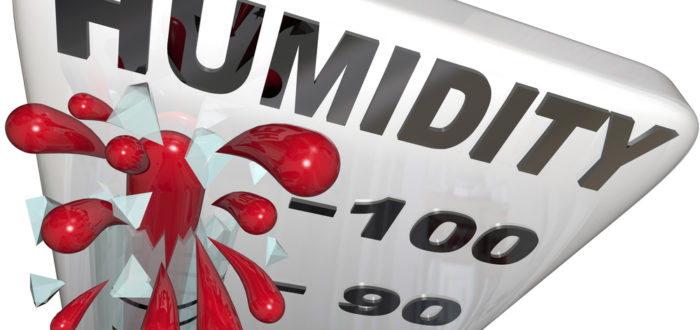Using a hearing aid can open up your possibilities for exploration and enjoyment of many activities this spring / summer. However, more time outdoors and participating in more strenuous pastimes can increase the likelihood of encountering humidity and other types of moisture. The downside is that delicate and intricate pieces of technology such as hearing aids do not do well when exposed to excess moisture.
So, how does high humidity affect your hearing aids?
What is Humidity?
Scientific American defines humidity as “a measure of the actual amount of moisture in the air compared to the total amount of moisture that the air can hold. Warm air can hold more water than cool air. But if the air (warm or cool) is holding half as much moisture as it can hold when saturated, the relative humidity is 50 percent.”
How Does Humidity Affect Hearing Aids?
Hearing aids have a level of water and dust resistance, known as the IP level. If you’re unsure of your hearing aid’s IP level, we recommend checking the manufacturer’s website.
Humidity is a little different to being caught in the rain or going to the beach. For example, condensation is created when warm air reaches the colder air around the metal parts of your hearing aid. We also tend to perspire more in humid environments, and that moisture doesn’t evaporate very easily in a humid environment.
When this collection of moisture gets trapped around or on the hearing aid ports and tubing can become clogged. The microphone or receiver could short circuit. Inner workings can be affected, such as the processing chip inside newer devices. It can often result in poor connections or corrosion,which is especially damaging for the battery.
How to Recognize Signs of Damage
If you notice your device is not performing at optimal levels, i.e. it works intermittently, sounds are distorted, static or crackling can be heard, sound fades in and out or cuts out upon loud noise or the battery is not lasting well. You may have damage from moisture/humidity.
If this is the case, some quick things that you can do to check your device include:
- Do you need a new battery?
- Is the compartment closed properly?
- Is the device switched on?
If you’ve checked these, and they all appear fine, check any tubing or ear molds, open the battery compartment and leave the device to air and dry out for a few hours, ideally inside a dehumidifier.
Protect Your Device
Be aware of humidity levels and what activities you will be participating in. Prepare by taking spare batteries, a towel or head sweatband that will wick away perspiration from near your hearing aid. Alternatively, remove your hearing aids when necessary and store them in a drying device.
Contact Us Today!
If you would like to discuss upgrading to a hearing aid with a higher IP rating, or you have any concerns about the performance of your current device, the team at Regional Hearing and Balance Center would be happy to help. Contact us today at 208-497-3596 or click here to book a complimentary hearing assessment.


Recent Comments